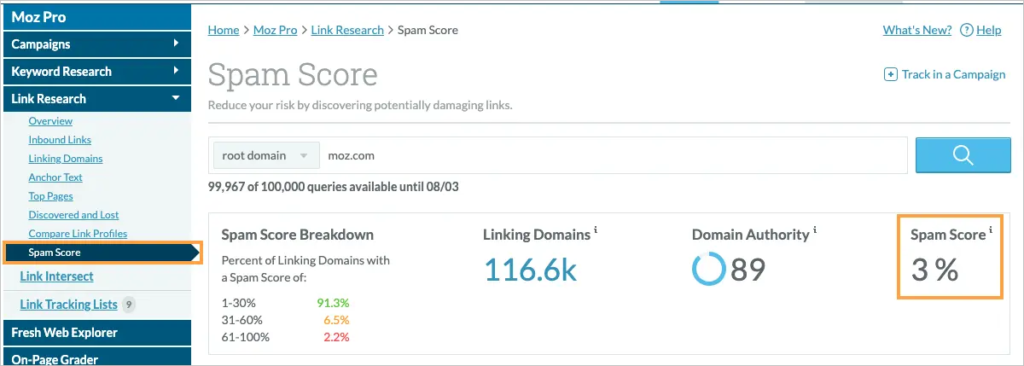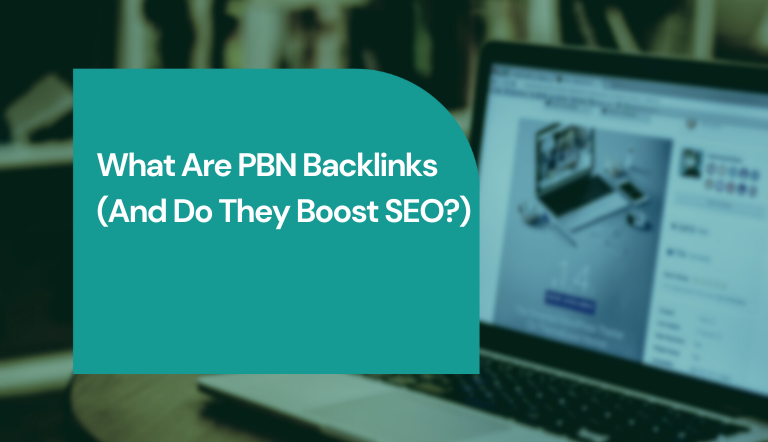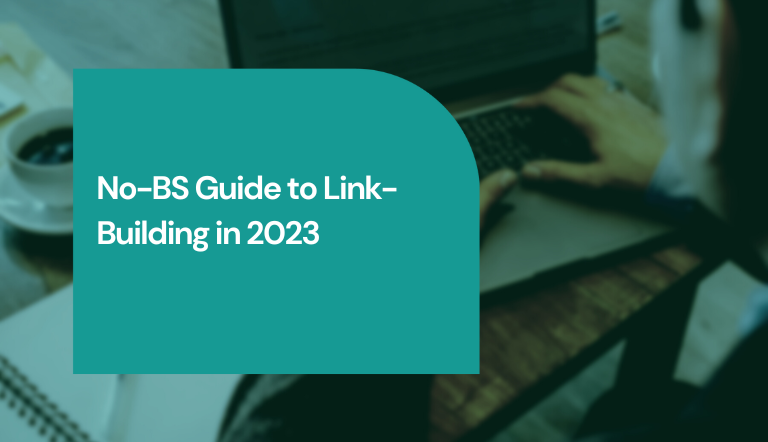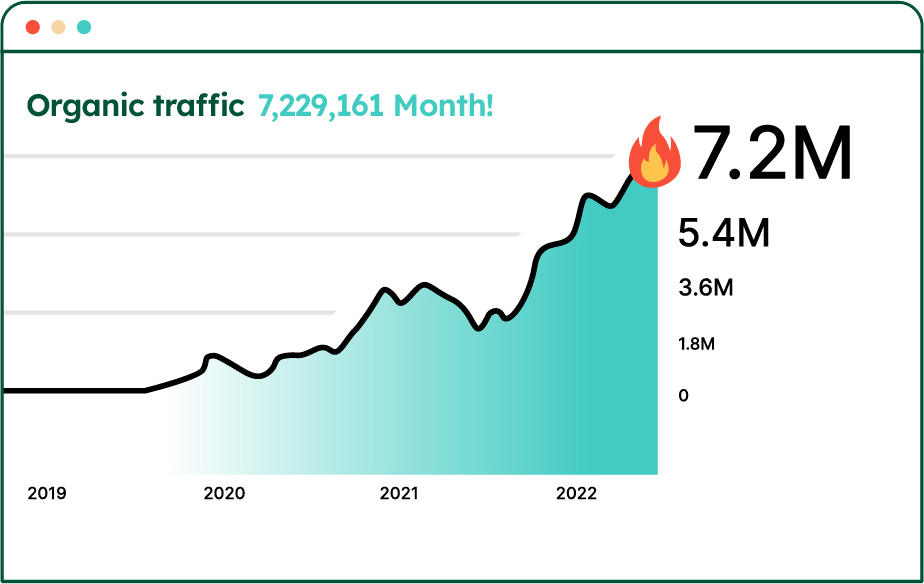Link-building can be one of the most tiresome parts of Search Engine Optimization (SEO).
That’s because getting high-quality backlinks for your website is a time-consuming process. It involves extensive research, constant content creation, and reaching out to different websites and building a strong relationship with them, among others.
That said, there are certain less-than-legit SEO techniques that people use to make link-building easier and quicker. The most popular among them are PBN backlinks.
But do these methods come with a price?
In this article, we will dive into the world of PBN backlinks to give you a better idea of what they can and can’t do. Whether you are looking to better understand the perks and drawbacks of using PBN backlinks or just want to learn more about them, this article is for you.
What Are PBN Backlinks?
PBN or Private Blog Network backlinks are links from a network or group of websites, the sole purpose of which is to link to a single, often monetized site. Using PBN backlinks is a black hat SEO technique that’s meant to boost a website’s ranking on a search engine result page (SERP).
Backlinks are nothing but links from one website to a page on another website. Search engines use backlinks as a way of determining the quality, legitimacy, and relevance of a particular site.
So, when multiple websites link to a particular site, search engines consider it to be a sign of approval. The more backlinks a website gets, the easier it is for search engines to determine how useful and authoritative it is.
So, let’s say, for instance, you own multiple websites. In that case, you can get all of your websites to link to any particular website that makes you the most money, also known as the money-maker site or the main site.
This will, in effect, manipulate the search engines and boost that particular site’s ranking.
Now, an important thing to note is that not every interconnected group of websites is a PBN. It is not uncommon to find a group of websites that are all linked to each other, and also belong to the same person or company
Let’s take this title bar from The Onion for example:

The title bar here links to multiple websites, all of which help them boost their traffic and rankings.
What separates such groups of websites from PBN, is that PBN networks do not provide any real value to the users – as the Onion does.
The sole purpose of the websites in a PBN network is to link to other websites without actually sharing any resourceful or helpful content.
What Does Google Think of PBN Backlinks?
Google isn’t a big fan of PBN backlinks. In fact, they directly violate its Webmaster Quality Guidelines.
As we explained, the sole purpose of PBN backlinks is to manipulate the rankings of a particular website, and Google’s link spamming guidelines clearly state that
“Any links that are intended to manipulate rankings in Google Search results may be considered link spam. This includes any behavior that manipulates links to your site or outgoing links from your site.”
So, although using PBN backlinks can help you boost your website’s ranking in the short term, using this tactic is likely to harm your SEO efforts in the long run. More specifically, Google may decide to penalize your website, kill all your SEO efforts, and have a huge negative impact on the overall ranking of your website.
Do PBN Backlinks Improve SEO?
Yes, PBN backlinks can improve your website’s SEO – but only for a very short time.
While building links with the help of PBNs may be comparatively easier than organic link-building, it is important to remember that PBN backlinks are not sustainable.
In the long run, they can create a lot of problems for your business’s online presence, as they violate Google’s guidelines.
As such, PBN backlinks are not really the best SEO strategy.
How Do People Build PBN Backlinks?
People take advantage of several methods to build and deploy PBN backlinks. Here are the two most common:
#1. Building Your Own PBN
To build your own PBN, you need to start by identifying expired domains that already have some authority. If you try to build a PBN with new domains that have no domain authority, its effects would be negligible.
Hence, people tend to purchase old domains that were once active and have a certain amount of authority built up. Once you acquire an old but highly authoritative domain, you can go ahead and publish your own content on it.
Ensure this content contains links to your main site to help boost its ranking on the search engine result page.
You can repeat this by purchasing as many domains as you want and you will have your very own private blog network.
#2. Purchasing Links From Other PBNs
Alternatively, if you don’t have a lot of experience in this field, then you can simply reach out to someone who already owns a PBN.
There are many people who have built large networks of blogs and are willing to send links from those blogs to your website, for a fee. This, by far, is the fastest way in which you can boost the ranking of your website, without doing almost anything at all.
However, while purchasing links from someone who already has a PBN may be the fastest opinion, building your own PBN is definitely the safest option.
When you build your own private blog network, you have complete control over the entire network. You understand what the strengths and weaknesses of your network are, and how you can best utilize it. This will always be the more secure of the two methods, as you don’t really know how safe someone else’s PBN is.
If, for example, their network gets easily detected by web crawlers, it’s game over for your website.
Should You Use PBN Backlinks?
Just like everything else, PBN backlinks come with their own pros and cons.
Let us take a detailed look at what these pros and cons are to help you better understand the risks associated with using PBN backlinks:
Pros of PBN Backlinks
- Compared to organic link-building, PBN backlinks provide you with a quicker way to boost your website’s search engine ranking.
- Since you own all the sites, you can freely decide which page to target with your backlinks.
- You also have complete freedom when it comes to choosing anchor texts. This means you can select anchor texts that are highly relevant to your target keywords.
- If you own a private blog network, then link-building is completely free.
- It can help you generate a lot of traffic for your main site, in a short amount of time.
Cons of PBN Backlinks
- PBN backlinks are against Google’s Website Guidelines, as they violate their link spam policies.
- Google can and will penalize, or even deindex your site.
- The cost of setting up and building your own PBN is very high.
- Using PBN-s is not a sustainable, long-term link-building strategy.
- The links you purchase are practically always worthless.
In conclusion, using PBN backlinks might be beneficial for a short amount of time, but once Google finds out about it, all your SEO efforts will be useless. As such, we suggest you avoid using PBN backlinks altogether, as it’s not worth your time and resources.
How To Spot PBN Backlinks?
Spotting PBN backlinks can get a little tricky if you don’t know what you are looking for.
The first thing you want to know is that PBN backlinks have some recurrent themes that you can identify with the help of online SEO tools such as Ahrefs and Moz.
These SEO tools provide you with all the information you need about the websites linking to your site. This includes metrics such as the number of links, the quality of those links, anchor texts, and the domain which these links originate from.
Based on this information, it becomes easier for you to identify the common red flags that can help you uncover potential PBNs:
- Irrelevant content. More often than not, PBN sites will have irrelevant content that doesn’t provide any real value to the user. Sometimes you may even find similar content across different sites belonging to the same PBN.
- Similar or repurposed site design. Different domains within a PBN often have a very similar site design. There’s usually low to no effort when it comes to designing these sites and you can notice they use similar templates.
- Low organic traffic. Generally speaking, PBNs use low-quality websites to link back to their target site. These low-quality websites often have little or no organic traffic. Ahrefs can provide you with the traffic information of domains linking to your site, which helps you identify such suspicious domains.
- Hosting and site ownership. Some PBNs use the same hosting provider or IP address, which makes it easier to spot them. Additionally, you can run a WHOIS query to check if the same person owns these domains.
- Suspicious anchor text. Another thing that can give away PBNs is their anchor text. Specifically, a similar pattern in anchor texts across various websites can be a sign of a potential PBN.
Furthermore, you can use Moz to identify the overall spam score of the domains linking to your site. Sites that have higher spam scores often use fishy tactics that Google penalizes.

Thus by identifying these common features you can more easily spot PBN links.
How To Remove PBN Backlinks?
Once you’ve identified suspected “toxic” links that could be coming from domains within a PBN, it’s a good idea to eliminate them.
Thankfully, Google provides website owners with the Disavow tool to help them remove unwanted, spammy backlinks from their websites. You can easily access the Disavow tool through Google’s Search Console.
To remove backlinks using this tool, all you need to do is copy and paste the suspicious links into a .txt file (2MB or less). You can then upload this .txt file to the Disavow tool and Google will add those links to its index.
According to Google, this process can take a few weeks to take effect.
Conclusion
In conclusion, PBNs can be a quick way to boost your website’s SERP rankings, but the risks and drawbacks associated with them outweigh the benefits.
Ultimately, investing in organic link building is your best bet at sustainably taking your website to the top of search engine rankings.





